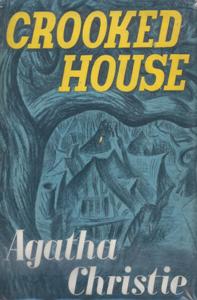Deborah Kerr’s character in “An Affair to Remember” gets hit by a car while rushing to meet her love on top of the Empire State Building. When she sees him years later, she tells him, “Oh, it’s nobody’s fault but my own! I was looking up… it was the nearest thing to heaven! You were there…” I mean yes, who wouldn’t be looking up? As dreamy as Carey Grant is, however, her statement sounds a little nutty and there is a scientific explanation for her concerning mindset.
I came across some information that I found vital to my research to open up discussions about love, sex, and relationships: when we self-categorize ourselves as “being in love,” we are actually in a chemical state of some mental illnesses. Not in the sense that the actual statement is false, but that our chemical and hormonal levels resemble those of addicts and people with Obsessive Compulsive Disorder.
One of the best known researchers in this field is Dr. Helen Fisher a biological anthropologist from Rutgers University. She says that falling in love can be categorized into three phases: lust, attraction, and attachment. Lust is that initial attraction which is solely based on your sex hormones. It is the attraction phase where we end up getting in trouble. In the attraction phase you are in a mindset when you think,“Okay, this person is really worth my time,” but what your body is doing is preparing you to begin to go overboard and care almost beyond reason about that person. In the attraction phase, dopamine triggers an intense rush of pleasure, creating the same effect cocaine and nicotine have on the hormone. Most interesting is that serotonin levels of a person in the attraction phase are the same of those with OCD, which explains the manic and obsessive behaviors love can provoke.
What puzzles me is that our society is programmed to believe that if you lack a significant other, you must not only one day find “the one,”but you are missing out on some vital human experience. So why is falling in love, a chemical state that is a mirrored image of mental illness, something we crave for and believe our lives to be incomplete without? From a biological standpoint, the attraction phase does end or overlaps with the attachment phase when the relationship becomes more serious and steady—coming from the proverbial idea that the “honeymoon is over.”So the manic should end at a point. We also mainly search for partners at its most basic level to reproduce and for companionship—it is the reason we have sex hormones in the first place.
A more colloquial and brilliant explanation of why we want to fall in love can be found in a Woody Allen quote, “To love is to suffer. To avoid suffering one must not love. But then one suffers from not loving. Therefore, to love is to suffer; not to love is to suffer; to suffer is to suffer. To be happy is to love. To be happy, then, is to suffer, but suffering makes one unhappy. Therefore, to be happy one must love or love to suffer or suffer from too much happiness.”
I suppose the answer truly lies in our need to keep life interesting in having both good times and bad, times of instability and times of steadiness, times of insanity and times of sound mind. Perhaps it isn’t necessarily a life partner that creates a full life, but a life filled with a lot of combating duality, some bumps and bruises and the occasional cheery forecast.









































































































